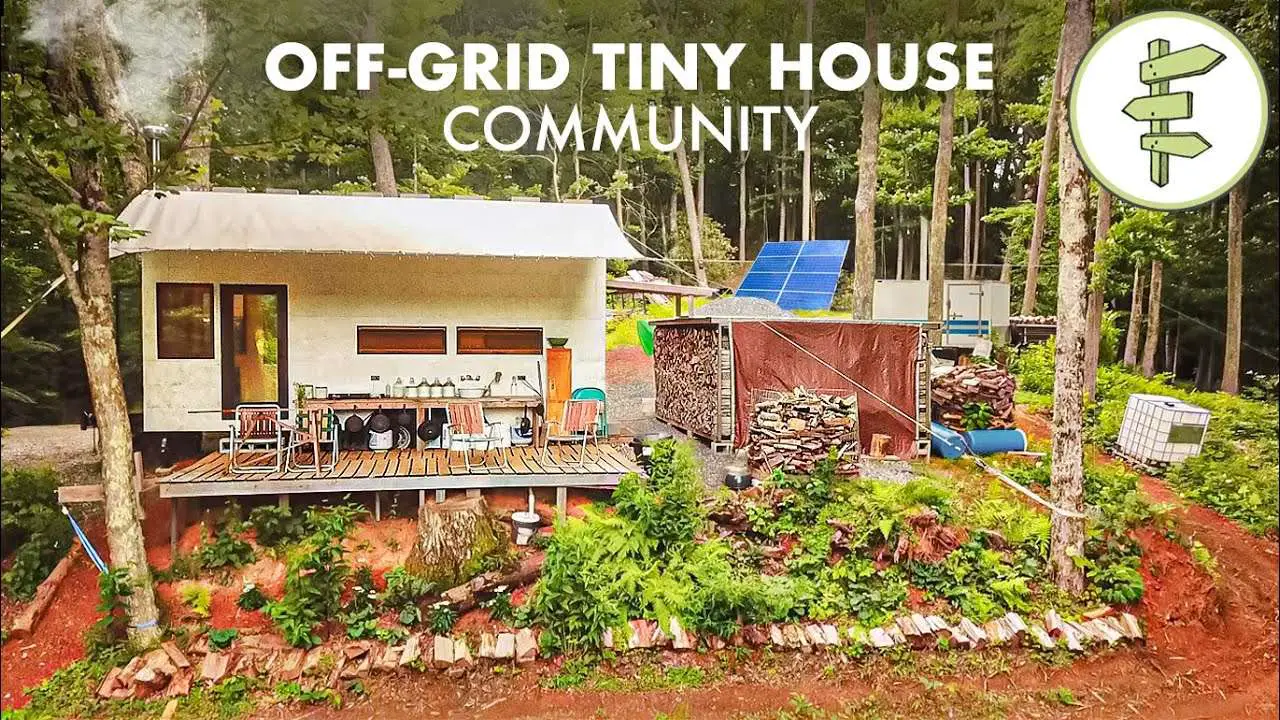In this article, we will explore the concept of off-grid living and discuss how self-sufficiency can be a valuable strength. We’ll take a closer look at what it means to live off the grid and discuss the benefits and challenges that come with it. Through examining different aspects of off-grid living, we will gain a better understanding of how self-sufficiency empowers individuals to live a more sustainable and independent lifestyle. So, join us as we delve into the strength of self-sufficiency in the world of off-grid living.
The Strength of Self-Sufficiency: Exploring Off Grid Living
Off grid living is a lifestyle choice that has gained popularity in recent years. It involves living independently, without reliance on public utilities such as electricity, water, and gas. This article will delve into what off grid living entails, the advantages and challenges of this lifestyle, as well as the various aspects of self-sufficiency. From evaluating personal needs to transitioning to off grid living, we will cover it all.
Definition of Off Grid Living
Off grid living refers to the practice of living without connection to public utilities. This means generating your own electricity, sourcing your own water, and being independent of conventional infrastructure. It involves a deliberate choice to disconnect from the traditional systems and create a lifestyle that promotes self-sufficiency.
Living without Reliance on Public Utilities
One of the main aspects of off grid living is the ability to sustain yourself without the need for public utilities. This includes generating your own electricity through renewable sources such as solar panels, wind turbines, or hydro power. Harvesting rainwater or utilizing natural water sources becomes essential for meeting water needs. Additionally, alternative means of heating and cooking, such as wood-burning stoves or solar ovens, are adopted to reduce reliance on gas or electricity.
Different Approaches to Off Grid Living
While the goal of off grid living remains the same, there are various approaches to achieve this lifestyle. Some individuals choose to live in remote areas, far away from conventional infrastructure, while others opt for semi-rural or suburban locations. The choice of location depends on personal preferences and the availability of resources. Off grid living can be practiced individually, as a family, or as part of a community, with each approach offering unique benefits and challenges.
Advantages of Off Grid Living
Increased Independence and Self-Reliance
Off grid living promotes self-sufficiency and empowers individuals to rely on their own skills and resources. It fosters a sense of independence, as you become less reliant on external factors for your basic needs. The ability to generate your own power, grow your own food, and obtain water from natural sources instills a sense of accomplishment and self-reliance.
Reduced Environmental Impact
Living off grid significantly reduces your environmental footprint. By generating electricity through renewable sources, you eliminate the need for fossil fuels and reduce greenhouse gas emissions. Additionally, practicing water conservation and adopting sustainable waste management practices further minimizes your impact on the environment.
Financial Benefits
Off grid living can lead to substantial financial savings. By generating your own electricity, you no longer have to pay monthly utility bills. Additionally, growing your own food reduces grocery expenses, and water self-sufficiency decreases reliance on expensive water supply systems. While the initial setup costs may be high, the long-term financial benefits can be significant.
Enhanced Connection with Nature
Living off grid allows for a deeper connection with nature. Surrounded by natural beauty and away from the hustle and bustle of urban life, individuals have the opportunity to appreciate and protect the environment. Spending time outdoors, tending to gardens, and observing wildlife can bring a profound sense of peace and fulfillment.
Sense of Freedom and Adventure
Off grid living offers a sense of freedom and adventure that is often missing in conventional lifestyles. Being able to choose your own path, live on your own terms, and explore alternative ways of living can be incredibly liberating. Whether it’s building your own home or cultivating your own food, every aspect of off grid living presents an opportunity for growth and adventure.
Opportunity for Skill Development
Living off grid requires learning new skills and adapting to a self-sufficient lifestyle. From building and maintaining off grid systems to growing and preserving food, off grid living provides endless opportunities for skill development. These skills not only enhance self-sufficiency but also offer valuable knowledge that can be shared and passed on to future generations.
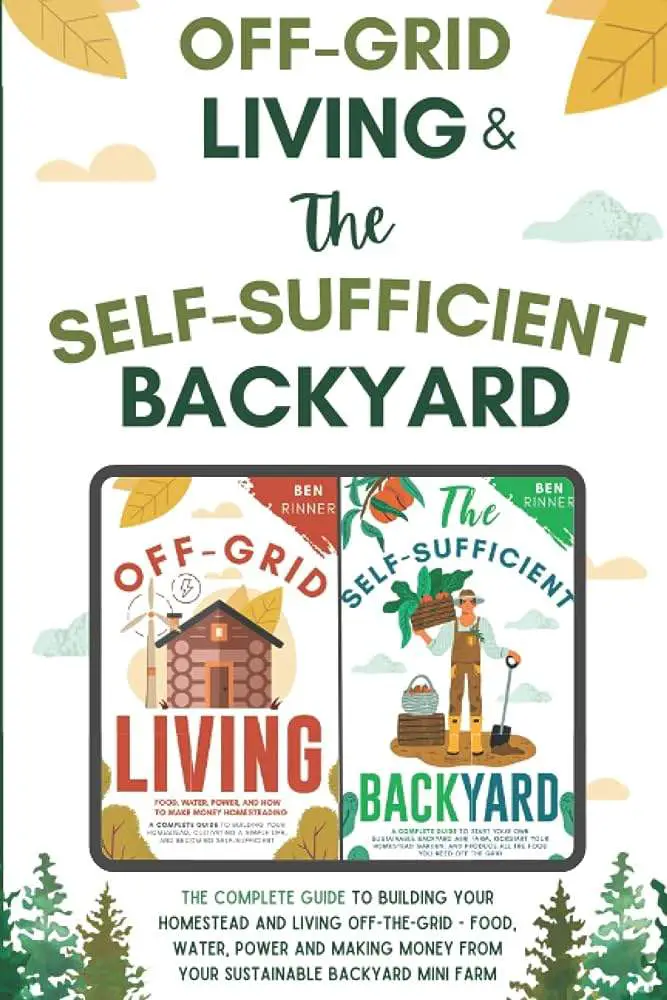
Challenges of Off Grid Living
Availability of Resources
One of the challenges of off grid living is the availability of resources. Remote locations may have limited access to water sources or suitable land for food production. It is important to thoroughly assess the availability of necessary resources before embarking on an off grid lifestyle. Adequate planning and research are crucial to ensure sufficient access to water, sunlight, and fertile land.
Maintenance of Off Grid Systems
Off grid systems require regular maintenance to ensure their efficient functioning. Solar panels and wind turbines need to be cleaned and inspected periodically, and batteries for energy storage may need to be replaced over time. Additionally, water and waste management systems, such as rainwater harvesting and composting toilets, require ongoing attention and maintenance.
Weather and Climate Considerations
Living off grid means being more exposed to the elements. Harsh weather conditions can pose challenges, such as extreme temperatures or heavy rain, which can affect the performance of off grid systems. Adequate planning and backup systems are necessary to mitigate the impact of adverse weather conditions on energy generation, water supply, and overall comfort.
Isolation and Limited Social Interaction
Living off grid in remote areas can result in limited social interaction and isolation. It is important to consider the impact of reduced social connections before transitioning to an off grid lifestyle. Creating and maintaining supportive networks, participating in local community activities, or joining off grid communities can help mitigate feelings of isolation.
Initial Setup Costs
While off grid living can lead to long-term financial benefits, it often requires a significant initial investment. The costs associated with setting up renewable energy systems, water sources, and sustainable infrastructure can be high. However, with careful planning and budgeting, these costs can be managed effectively.
Self-Sufficiency as a Strength
Empowerment and Personal Growth
Self-sufficiency empowers individuals to take control of their lives and make informed choices. The ability to meet basic needs independently builds confidence and self-esteem. It fosters personal growth and a sense of accomplishment as individuals acquire new skills and overcome challenges associated with off grid living.
Resilience in the Face of Challenges
Off grid living cultivates resilience by encouraging individuals to adapt and find solutions to various challenges. By relying on their own resources and problem-solving skills, off grid dwellers develop the ability to tackle obstacles with creativity and perseverance. This resilience can extend beyond the realm of off grid living and contribute to success in other aspects of life.
Reduced Dependency on External Factors
Living off grid reduces dependency on external factors that are often beyond our control. By generating your own electricity and obtaining water from natural sources, you become less susceptible to power outages or water shortages. This sense of control over basic needs can bring a greater sense of security and peace of mind.
Increased Control over Quality of Life
Off grid living allows for greater control over the quality of life. Individuals can prioritize their values and make decisions that align with their beliefs. From choosing sustainable practices to consuming organic food, off grid living provides an opportunity to shape a lifestyle that promotes health, wellness, and environmental stewardship.
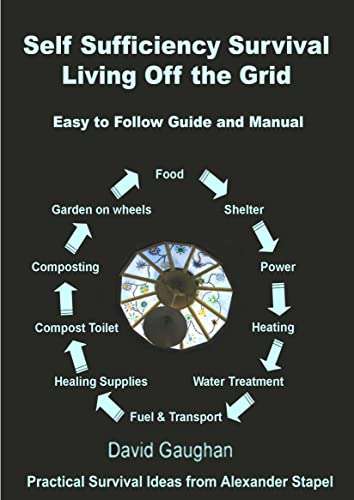
Different Aspects of Self-Sufficiency
Food Production and Preservation
Self-sufficiency in food production involves growing and preserving your own food. This can include cultivating vegetables, fruits, and herbs in gardens or small-scale farms. Additionally, raising livestock or poultry for meat, eggs, or dairy products can contribute to self-sufficiency. Preservation techniques, such as canning, freezing, and dehydrating, are employed to ensure a year-round food supply.
Water Management and Conservation
Self-sufficiency in water management involves finding alternative sources of water and practicing conservation. This can include rainwater harvesting, drilling wells, or utilizing nearby natural water sources such as lakes or rivers. Efficient water usage and recycling techniques, such as greywater systems, are employed to minimize water wastage and ensure a sustainable water supply.
Energy Generation and Renewable Sources
Self-sufficiency in energy generation involves harnessing renewable sources of energy. This can include installing solar panels, wind turbines, or hydro power systems to generate electricity. Energy storage systems, such as batteries, allow for energy usage even during non-sunny or non-windy periods. Energy efficiency practices, such as using energy-saving appliances and insulating homes, further enhance self-sufficiency.
Waste Management and Recycling
Self-sufficiency in waste management involves adopting sustainable waste practices and recycling. Composting organic waste helps in enriching the soil and reducing the need for chemical fertilizers. Recycling materials such as paper, plastic, and glass reduces waste generation and promotes a circular economy. Additionally, reusing and repurposing items minimizes the need for new purchases and reduces resource consumption.
Skills and Knowledge Acquisition
Self-sufficiency involves acquiring and honing a wide range of skills and knowledge. From learning to build and maintain infrastructure to acquiring gardening and food preservation skills, off grid living encourages continuous learning and self-improvement. Knowledge about alternative energy systems, water management techniques, and sustainable practices is essential for the successful implementation of self-sufficiency.
Strategies for Achieving Self-Sufficiency
Evaluating Personal Needs and Priorities
Before embarking on the journey of self-sufficiency, it is important to evaluate your personal needs and priorities. Identifying your specific goals, such as reducing environmental impact, improving food security, or achieving financial freedom, will help determine the strategies and resources required to achieve self-sufficiency.
Building a Sustainable Farm or Homestead
Creating a sustainable farm or homestead is a common approach to achieving self-sufficiency. This involves cultivating crops, raising livestock, and implementing sustainable practices such as permaculture and regenerative agriculture. Integrating various systems such as greenhouse farming, aquaponics, and agroforestry can further enhance self-sufficiency and improve food production.
Implementing Green Technologies
Green technologies play a crucial role in achieving self-sufficiency. From installing solar panels and wind turbines for energy generation to incorporating smart home technologies for efficient resource usage, implementing green technologies can significantly improve self-sufficiency. Automation systems and remote monitoring can further streamline energy and resource management.
Learning Traditional and Alternative Skills
Learning traditional and alternative skills is essential for self-sufficiency. This can include learning traditional farming methods, preserving food using ancient techniques, or acquiring carpentry and construction skills for building sustainable structures. Additionally, learning alternative energy systems, water conservation techniques, and waste management practices contributes to overall self-sufficiency.
Creating Support Networks
Creating supportive networks is crucial for self-sufficiency. Building relationships within off grid communities, attending workshops or courses on self-sufficiency, and actively participating in local sustainability initiatives can provide invaluable support and resources. Sharing knowledge, experiences, and resources with like-minded individuals fosters a sense of community and promotes collective self-sufficiency.
Examples of Successful Self-Sufficient Communities
Ecovillages and Sustainable Communities
Ecovillages and sustainable communities are examples of successful self-sufficient communities. These communities prioritize sustainable practices, such as renewable energy generation, organic farming, and water conservation. They often have shared resources, communal spaces, and cooperative decision-making processes that enhance self-sufficiency and promote environmental stewardship.
Permaculture Demonstrations
Permaculture demonstrations showcase successful self-sufficient systems. Permaculture principles, which focus on designing sustainable and productive systems, are applied in various settings such as gardens, farms, and communities. By creating diverse and interconnected ecosystems, permaculture practices can provide abundant food, water, and energy while minimizing environmental impact.
Off Grid Living Case Studies
Numerous case studies highlight successful off grid living experiences. These range from individuals living in tiny homes or converted vehicles to families or communities living in remote areas. These examples demonstrate the varied approaches to off grid living and offer insights into the challenges and rewards associated with self-sufficiency.
Impact of Off Grid Living on Health and Well-being
Physical Health Benefits
Off grid living has various physical health benefits. The focus on growing organic food ensures access to fresh and nutritious produce. Additionally, being actively involved in tasks such as gardening, farming, and building promotes physical activity and can improve overall fitness. Breathing fresh air and spending time outdoors also contribute to better respiratory health and overall well-being.
Mental and Emotional Well-being
Off grid living can have a positive impact on mental and emotional well-being. Living in close proximity to nature, away from the noise and stress of urban life, can reduce anxiety, improve mood, and enhance mental clarity. The sense of accomplishment and self-reliance experienced in self-sufficiency can boost self-esteem and create a deeper sense of fulfillment.
Sense of Fulfillment and Purpose
Off grid living can provide a heightened sense of fulfillment and purpose. The act of living sustainably, reducing environmental impact, and creating a lifestyle aligned with personal values can contribute to a greater sense of meaning. The tangible results of self-sufficiency, such as homegrown food, harvested rainwater, and renewable energy generation, can instill a profound sense of purpose and satisfaction.
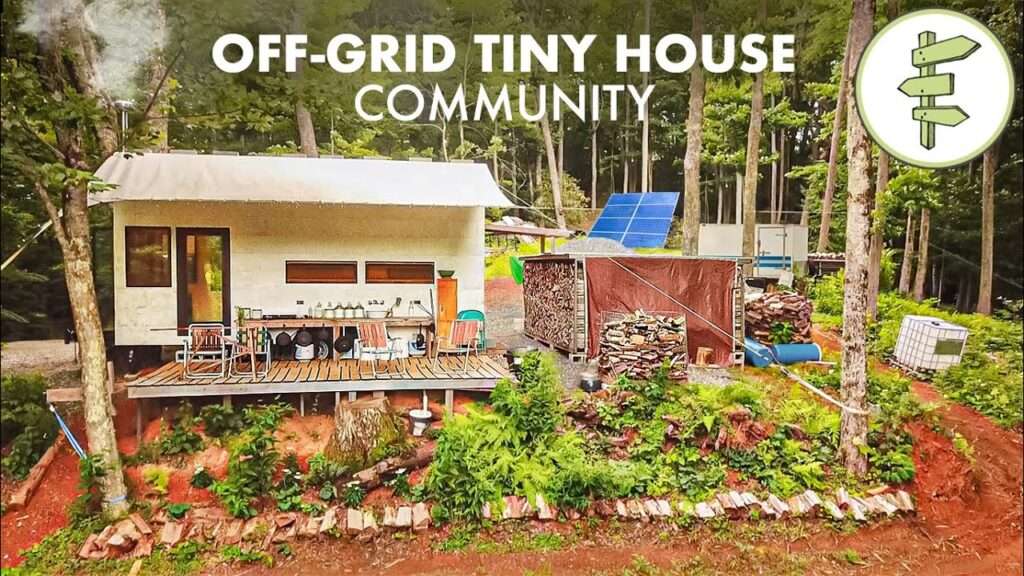
Off Grid Living and Sustainable Development
Reducing Carbon Footprint
Off grid living is a significant contributor to reducing carbon footprints. By relying on renewable energy sources instead of fossil fuels, individuals living off grid prioritize sustainable energy generation. This reduces greenhouse gas emissions, mitigates climate change, and contributes to a more sustainable future.
Conservation and Preservation of Natural Resources
Off grid living emphasizes the conservation and preservation of natural resources. By adopting sustainable practices such as water conservation, waste management, and organic farming, off grid dwellers actively contribute to the preservation of ecosystems and biodiversity. This promotes the long-term sustainability of natural resources and reduces the strain on the environment.
Promotion of Sustainable Lifestyles
Off grid living serves as a model for promoting sustainable lifestyles. By showcasing the benefits of self-sufficiency and highlighting alternative ways of meeting basic needs, off grid living inspires others to adopt sustainable practices. This ripple effect can contribute to a collective shift towards more sustainable and environmentally friendly lifestyles.
Contributing to Global Environmental Goals
Off grid living plays a crucial role in achieving global environmental goals. By reducing reliance on conventional energy sources and implementing sustainable practices, off grid dwellers actively contribute to global efforts to combat climate change and promote sustainable development. The collective impact of off grid communities can be significant in shaping a greener and more sustainable future.
Government Policies and Support for Off Grid Living
Incentives and Grants
Many governments offer incentives and grants to support off grid living. These can include financial incentives for installing renewable energy systems, tax breaks for sustainable practices, or grants for research and development in self-sufficiency technologies. Governments recognize the importance of promoting sustainable living and provide support to individuals and communities embracing off grid lifestyles.
Regulations and Permits
Off grid living often requires adherence to specific regulations and permits. Governments may have guidelines in place for installing renewable energy systems, waste management practices, or water sourcing. These regulations ensure safety, efficiency, and environmental protection. It is important for off grid dwellers to familiarize themselves with local regulations and obtain necessary permits.
Collaboration with Environmental Organizations
Governments often collaborate with environmental organizations to promote off grid living and support sustainable lifestyles. These partnerships can involve initiatives such as educational programs, community projects, or research and development of sustainable technologies. The combined efforts of governments and environmental organizations are essential in fostering the growth and acceptance of off grid living.
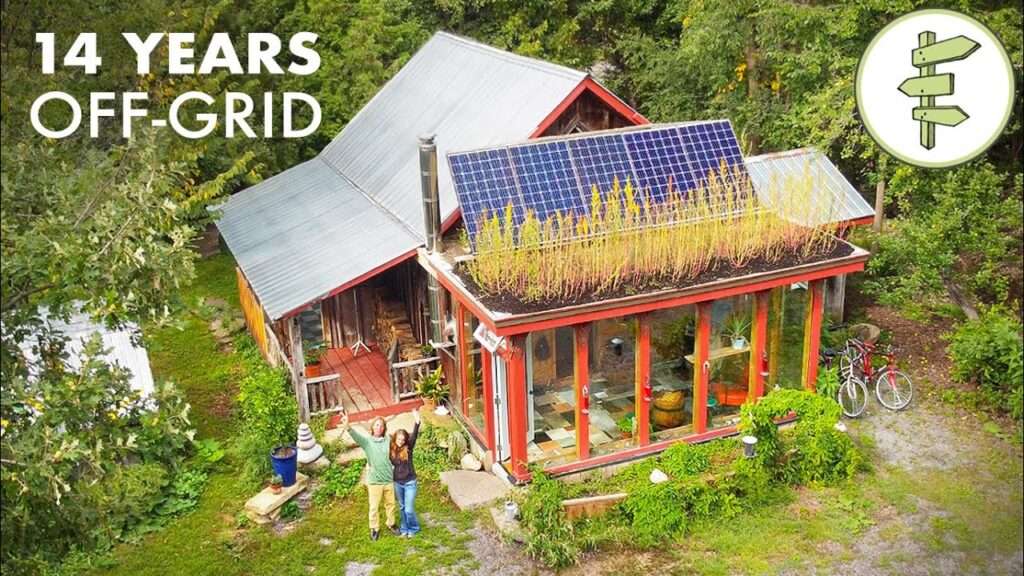
Off Grid Living and Technological Innovation
Advancements in Renewable Energy Technologies
Off grid living drives technological innovations in renewable energy. The need for reliable and efficient energy storage systems, as well as advancements in solar and wind power technologies, have been accelerated by the growing off grid movement. These innovations not only benefit off grid dwellers but also contribute to the overall advancement of renewable energy solutions.
Smart Home Integration
Off grid living embraces the integration of smart home technologies. By incorporating automation systems, remote monitoring, and smart energy management, off grid dwellers can optimize energy usage, reduce wastage, and enhance overall efficiency. Smart home integration allows for effective resource management and increases the convenience of off grid living.
Monitoring and Automation Systems
Monitoring and automation systems play a vital role in off grid living. By monitoring energy usage, water consumption, and waste generation, off grid dwellers can make informed decisions and optimize resource management. Automation systems allow for efficient control and operation of renewable energy systems, water management systems, and waste management practices.
Exploring Different Off Grid Living Options
Tiny Homes and Mobile Living
Tiny homes and mobile living are popular choices for off grid living. These compact and sustainable living spaces offer flexibility and mobility. Built with energy-efficient materials and designed to maximize space utilization, tiny homes provide a minimalist and environmentally friendly lifestyle. The ability to move homes to different locations allows for exploration and adaptability in off grid living.
Earthships and Natural Building
Earthships and natural building techniques offer an alternative approach to off grid living. Earthships are sustainable homes built using recycled materials, solar panels, and rainwater harvesting systems. They are designed to be off grid, self-sufficient, and environmentally friendly. Natural building techniques, such as cob, straw bale, or adobe construction, prioritize renewable materials and traditional building practices.
Houseboats and Floating Communities
Houseboats and floating communities provide unique off grid living options. These water-based dwellings utilize solar power, rainwater collection, and composting toilets to achieve self-sufficiency. Floating communities promote a strong sense of community and offer the opportunity to explore different locations while maintaining a sustainable lifestyle.
Mountain Cabins and Wilderness Retreats
Mountain cabins and wilderness retreats offer an off grid living experience immersed in the beauty of nature. These secluded locations provide a peaceful and tranquil environment, away from the distractions of urban life. Off grid systems such as solar panels, rainwater collection, and wood-burning stoves enable self-sufficient living in these remote settings.
Tips for Transitioning to Off Grid Living
Energy and Resource Assessment
Before transitioning to off grid living, conduct a thorough energy and resource assessment. Determine your energy needs, estimate water consumption, and evaluate food requirements. This assessment will guide the development of off grid systems and ensure they are appropriately sized and designed to meet your specific needs.
Gradual Transition and Learning Curve
Transitioning to off grid living is a gradual process. Start small by implementing sustainable practices and gradually increase self-sufficiency. Acquire new skills and knowledge through research, workshops, or courses. Embrace the learning curve and be prepared for challenges along the way. Patience and perseverance are key to successful off grid living.
Adapting to a Simpler Lifestyle
Off grid living often requires embracing a simpler and more mindful lifestyle. Letting go of materialistic desires and focusing on necessities can make the transition easier. Recognize the value of sustainable practices, self-sufficiency, and connection with nature. Embrace the freedom and fulfillment that comes with living off grid.
Embracing Challenges and Learning from Mistakes
Challenges are an inevitable part of off grid living. Embrace them as opportunities for growth and learning. As you navigate through different aspects of self-sufficiency, be open to adapting and adjusting your strategies. Learn from mistakes and seek guidance from experienced off grid dwellers or supportive communities.
Conclusion
Embracing the strength of self-sufficiency through off grid living offers countless benefits and opportunities. From increased independence and reduced environmental impact to enhancing personal growth and overall well-being, off grid living has the potential to transform lives. By adopting sustainable practices and implementing innovative technologies, individuals and communities can contribute to a more sustainable future and thrive in the strength of self-sufficiency.

